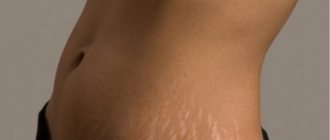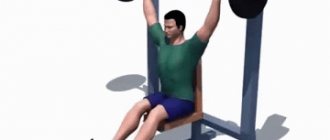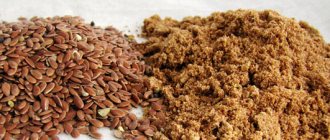INTRODUCTION
If you have been diagnosed with cancer and continue to smoke or use other tobacco products, you may feel that it is too late to quit or that quitting will not benefit you.
Some people deep down feel guilty that smoking may have led to the development of cancer, so they do not deserve additional help or treatment. HOWEVER, IT IS NEVER TOO LATE TO QUIT SMOKING!
Regardless of whether you have previously had cancer or are one of the newly diagnosed patients, quitting smoking and using other tobacco products is beneficial in any case. It is important not only to stop smoking cigarettes, but also to stop using other forms of tobacco, including cigars, pipes, smokeless tobacco (chewing and snuff), as well as so-called alternative tobacco products, including hookahs and e-cigarettes. None of them are safe.
In many cases, there are benefits to quitting smoking after being diagnosed with cancer:
- You will have the support and encouragement of your doctor, nurses, and other health care professionals involved in your care.
- You will feel like you are doing something good for yourself and your life.
- You will be able to focus all your energy on recovery.
Most people who use tobacco want to stop using it. Although it can be quite difficult, many people succeed. In addition, there are various treatment options and resources to help you achieve your goals. It is always possible to quit smoking, and all health care providers involved in your care can help you do so. Use this information to learn more about the benefits of quitting tobacco use after a cancer diagnosis and to find a list of programs and other resources that can help you achieve this goal.
Lose weight without cigarettes
It is possible to lose weight without cigarettes! In fact, it is even easier for a non-smoker to do this - his body absorbs food better and tolerates physical activity well. If the problem of excess weight exists, you need to think about how to lose weight after giving up cigarettes from the moment you make such a decision, and not when you gain even more fat.
Psychological preparation
Psychological preparation and self-motivation need to be done even before the last cigarette is smoked. Without a serious reason to work on yourself, it is impossible to achieve good results. Therefore, it is worth taking time to seriously think about these questions:
- Why did I decide to quit smoking?
- How does smoking affect my life?
- Why do I need cigarettes?
- When do I want to smoke most?
- What can replace smoking for me?
- How to reward yourself for quitting smoking?
- How will my life change without cigarettes?
Once you receive the answers, you will understand what is stopping you from giving up your bad habit. And if it’s the fear of gaining excess weight that’s stopping you from throwing away cigarettes, rest assured that there are ways to avoid it.
Moreover, you have already answered the question of whether smoking makes you lose weight. Is it possible to do this easily? Let’s find out.
Power control
The main thing to do is to control your diet. And under no circumstances should you go on a diet or strictly limit your diet. The body is already under stress from being deprived of its usual cigarettes. There is no need to shock him even more by taking away sweets and other favorite treats.
At the first stage, it is quite enough to ensure that you do not eat more than before. That is, the desire to smoke is not seized.
Nicotine chewing gum can be a good help, but its frequent use will aggravate stomach problems. Therefore, it is better to use it no more than 5-6 times a day and no longer than two weeks.
Then gradually include the following steps in your weight loss program:
- Increased fluid volume. Make it a habit to start your morning with a glass of clean water, drunk on an empty stomach. It is advisable to drink another glass half an hour before each meal. And when you want to smoke, take a few more sips of water. Thus, you will help the body quickly remove toxins that have accumulated over many years, tame the rampant appetite and restore freshness to the skin.
- Reducing caloric intake. This must be done very smoothly and carefully. The easiest way is to reduce your usual portions by 20%. This can be done easily and without calculations - just set aside a fifth of everything that is already there from the plate. The body will not notice such a catch, but at the same time the weight will gradually begin to decrease and certainly will not increase.
- Fruits and vegetables. They should be on your table at least 70% of the total food. For a long time, the body did not receive enough vitamins and microelements, which were destroyed upon contact with nicotine. At the same time, toxic resins contributed to the formation of free radicals that destroy healthy cells and promote the growth of tumors. Fruits and vegetables are the best source of vitamins and antioxidants and are low in calories.
- Reduced fat content. It is especially important to reduce the amount of animal fats taken from food. Therefore, we use no more than 10-15 grams of butter per day. Before cooking, remove all visible fat from meat and fish. Frying in a pan will have to be replaced with a grill. And choose milk with a minimum fat content.
- Replacement of carbohydrates. Fast carbohydrates easily satisfy hunger, but are quickly stored on the sides. Slow ones give a feeling of fullness for a long time and are gradually consumed by the body. Therefore, the following replacements must be made in the diet: semolina with buckwheat, white rice with brown unpolished, white bread with dark or whole grain, sugar with honey and dried fruits, pasta - only from durum wheat and in small quantities.
These basic healthy eating principles aren't just for smokers. But when quitting smoking, they are especially important, since the body literally has to be cleansed and put in order. If you follow them, it is possible to lose weight even without diets and strict restrictions.
Physical exercise
The easiest way to lose weight after quitting smoking is to play sports. Moreover, now you can afford it. And you need to start with basic morning exercises and aerobic training.
At first it will be difficult - it is very difficult for smoked lungs to cope with the increased load. Be prepared for increased coughing, shortness of breath and dizziness.
The cardiovascular system also suffers quite a lot from cigarettes. Nicotine causes a narrowing of the capillaries (which is why many smokers have bluish lips and constantly cold hands). It is difficult for the heart to push blood through narrow tubes, and it begins to work with great effort. Therefore, it is very important not to immediately apply large loads - they must be increased very gradually.
After just a couple of weeks, you will notice that shortness of breath appears less frequently, and attacks of tachycardia that began with one type of sports equipment are gradually becoming a thing of the past.
Be prepared for periodic bouts of severe coughing, during which pieces of dirty mucus will begin to come out of your lungs - this is a normal cleansing process, and it will soon be completed.
BENEFITS OF QUITTING SMOKING
There are many physical and psychological benefits to stopping tobacco use after a cancer diagnosis, including:
- Increased life expectancy
- More chances for successful treatment
- Reduce serious side effects from all cancer treatments, including surgery, chemotherapy and radiation therapy
- Faster recovery after treatment
- Reducing the risk of secondary tumors
- Reducing the risk of infectious complications
- Easy breath
- More energy
- Better quality of life
On the other hand, continued use of tobacco carries the following risks:
- Increased life expectancy;
- Shortening life;
- Less chance of successful effective treatment;
- More complications after surgery associated with disruption of the heart and lungs, slower recovery;
- More side effects from chemotherapy, such as infections, fatigue, heart and lung problems, weight loss;
- Additional side effects from radiation therapy, including dry mouth, mouth ulcers, loss of taste, and bone and soft tissue problems;
- Increased likelihood of relapse (cancer returning after treatment);
- Increased risk of other serious diseases related to heart and lung problems, or a second tumor.
Talking to your doctor about your tobacco use
Many cancer patients are embarrassed to tell their doctor about their habit of smoking or chewing tobacco. They fear that the doctor may judge them or that they may receive less support and assistance from health care providers. Other people think that quitting smoking after being diagnosed with cancer doesn't make sense because they already have cancer and using tobacco can help relieve stress after a scary diagnosis. However, none of these statements are true. There are actually significant health benefits associated with quitting tobacco use, even after cancer has been diagnosed, and the health care providers involved in your care are committed to helping people who want to achieve this goal.
It is important to talk to your doctor or health care provider about your behavior. People who use tobacco products daily have a strong nicotine addiction. This addiction will be difficult to overcome, even if you are motivated to quit. It is necessary to determine the degree of nicotine addiction, which will help the doctor prescribe appropriate treatment. This will help you quit smoking and continue living without dependence on nicotine.
Your doctor needs to know the following facts about your tobacco use:
- Have you smoked at least 100 cigarettes in your life?
- Do you currently smoke
- Do you smoke within the first 30 minutes of waking up?
- How many years and how many cigarettes per day have you smoked regularly?
- At what age did you start smoking?
- How long have you not smoked (if you quit smoking)
- How many times have you tried to quit smoking and how long did each attempt last?
- What methods have you used or are currently using to try to quit smoking?
- Does anyone in your family smoke?
- Do you smoke at work?
- Do you use or have you used other types of tobacco besides cigarettes and how often have you used them?
- Has your tobacco use changed since cancer was diagnosed?
Physiological dependence on nicotine
After the rapid development of mental attachment, the bad habit gradually passes into the stage of physical dependence. This is a condition in which the body needs the constant presence of nicotine. It forms a strong addiction, which is comparable to drug use. At the same time, a person understands the harm of smoking, but is not able to withstand more than a few days. Quitting cigarettes causes signs of withdrawal, or withdrawal symptoms.
With physical dependence, tolerance to nicotine develops. This manifests itself as a lack of feeling of euphoria and relaxation after smoking. Therefore, a person gradually increases the number of cigarettes smoked per day. Smoking becomes a habit immediately after waking up, on an empty stomach, after eating. The intervals between smoked cigarettes are shortened to 1-2 hours. If it is not possible to do this, then the following signs appear:
- feeling of anxiety and restlessness;
- increased irritability;
- dysphoria;
- uncontrollable desire to smoke;
- difficulty concentrating;
- headache;
- increased appetite.
Manifestations of withdrawal syndrome reach a maximum after 24-48 hours, and then gradually decrease.
When a person develops physical dependence, nicotine consumption becomes out of control. After a few years, the negative effects of tobacco on the entire body appear. Smokers understand that morning cough, increased incidence of respiratory diseases, and cardiovascular pathologies are formed due to an addiction. Against the background of vascular damage from tobacco components, blood clots form, which can cause a stroke or heart attack. Cancers of the lung, larynx or lower lip also predominantly occur in people with a long history of smoking.
MYTHS ABOUT SMOKING CESSATION
Myth: Smoking is a completely personal choice.
Fact: In addition to nicotine, tobacco contains addictive chemicals, which is why many people who start smoking quickly become addicted to nicotine.
Myth: There is no point in quitting smoking if cancer is diagnosed.
Fact: It's never too late to quit smoking. People who quit smoking after being diagnosed with cancer live longer, have a better chance of successful treatment, experience fewer side effects from treatment, recover faster and have a better quality of life.
Myth: Quitting smoking is too stressful for patients undergoing cancer treatment.
Fact: Although nicotine addiction is difficult to overcome and quitting can be uncomfortable, the benefits of quitting outweigh any discomfort associated with it.
Myth: Smokers can stop using tobacco on their own without needing a doctor's help.
Fact: Doctors and other health care providers can provide support, information, and medication to help people quit smoking.
Myth: Most tobacco treatment treatments are ineffective.
Fact: There are medications that can help you cope with nicotine addiction and increase your chances of successfully overcoming it. Ask your doctor for help.
Compensating for a bad habit
When a person quits smoking, his taste buds and sense of smell become sharper. Refusal of familiar dishes after breaking a close friendship with cigarettes can lead to mental disorders. In order not to gain weight and not experience stress during the period of the body’s adaptation to a healthy lifestyle, it is important to approach nutrition issues correctly and reconsider your eating habits. Pay attention not to the quantity of food you eat, but to its quality. Prepare delicious and healthy meals, enjoying them without gaining extra pounds. Thus, the feeling of inadequate satisfaction of desires will quickly pass, and giving up the habit will be as painless as possible.
Be sure to read: Effective and dietary recipes for cleansing the body
After saying goodbye to tobacco smoke, the human body needs a lot of energy to cleanse itself of poisons and toxins. Do not give up food completely; replenish your reserves as necessary by expending calories in light sports.
HOW TO QUIT SMOKING?
People who want to quit smoking can use a variety of methods, including medication and psychological counseling. Your chances of quitting tobacco use are greatly increased if you use a comprehensive plan that includes: setting a goal date for quitting smoking, developing a plan to deal with smoking triggers (situations that make you want to use tobacco), and creating a “network.” support." Discuss with your doctor which approaches are best for you.
Sports can help, or how to lose weight after quitting smoking
Physical training is a great way to prevent rapid weight gain. You can use an exercise bike, do brisk walking, swimming or breathing exercises.
Important: Under no circumstances should you exercise too intensely. Smokers often have blood vessels clogged with toxins, which create blood clots and block blood circulation. Excessive stress will only worsen the functioning of the cardiovascular system.
You need to train, gradually increasing the load to the desired level. Stimulating music in the playlist will lift your mood and make your workout less boring, and playing sports will distract you from the desire to reach for a cigarette.
Medications
Using special medications can significantly increase your chances of quitting smoking. There are three types of medications to treat nicotine addiction:
Nicotine replacement therapy (NRT)
NRTs are the most commonly used medications. They have few side effects and are available both over the counter and by prescription in various forms (chewing gum, tablets, skin patch, inhaler, nasal spray).
NRT medications reduce symptoms of nicotine addiction. Your doctor will help you find the best dosage for you based on your current smoking habits.
Bupropion (Wellbutrin, Zyban). These antidepressants can be used to reduce withdrawal symptoms even if you are not depressed. Common side effects include dry mouth and insomnia (difficulty falling or staying asleep).
Varenicline (Chantix). This medication reduces withdrawal symptoms and, if you start smoking again, may reduce the pleasure you get from nicotine. Common side effects - may cause nausea, dreaming, constipation and drowsiness.
Psychological counseling
In addition to the benefits of medications, psychological counseling increases your chances of successfully quitting tobacco use. Discuss with your doctor the possibility of referring you to a smoking cessation counselor or psychotherapist. This is especially helpful if you have been unsuccessful in your attempts to quit smoking or if you experience the following:
- Severe feelings of anxiety or depression
- Insufficient support from family and friends for your desire to quit smoking
- Dependence on alcohol or other substances
Reviews
Olga, 35 years old, Krasnoyarsk “After quitting smoking, I constantly felt a feeling of hunger, which I tried to relieve by playing sports and eating the “right” foods. A similar method helped me quit smoking painlessly and, moreover, I lost 17 kilograms and have not recovered for a year! Moreover, I managed to forget about smoking once and for all!”
Stanislav, 28 years old, Kazan “As a child, I played sports, then I quit my favorite activity, replacing it with office work and smoking. I tried to quit smoking for several years, but immediately gained excess weight and resumed the habit. I thought about the question of how to quit smoking, and at the same time lose weight, and to do all this at the same time. I decided that I needed to look for the problem within myself and get rid of the reason for smoking, and not the habit itself. I completely revised my lifestyle, instead of smoking breaks I began to spend the same 10 minutes during the working day on walking up the stairs or other light exercises, and on weekends I replaced visits to the pub with visits to the gym. The desire to hold something in my mouth quickly conquered, and for two years now I have been in excellent physical shape!”
Natalya, 41 years old, Tyumen “I’ve been trying to quit smoking for decades. Physical activity is contraindicated for me for health reasons, eating “proper” food is accompanied by a constant feeling of hunger, and constant breakdowns and nervousness only aggravate the situation. As a result, on average my weight grows by 5 kg per year and no diet helps. I don’t have any problems with smoking at the moment, but I don’t know how I can lose weight after I quit smoking on my own.”
Arkady, 58 years old, Voronezh “A banal switch of attention to something more interesting helped me quit smoking. This is how I got my favorite dog and a wonderful hobby – hunting. By training with my dog in the fresh air, I gain the athletic figure of a smart assistant for my hobby. There are no problems with nutrition. I was easily able to change my eating habits due to the fact that my main attention was occupied with something more interesting than stuffing my belly. I haven’t smoked for 8 years, I feel great and I’m not gaining fat!”
Many people ask the question: “If I quit smoking, can I still lose weight?” Anything is possible, the main thing is willpower. Quit smoking and don't get fat, and a few important tips from Allen Carr in the video will help you get rid of the addiction forever and maintain your beauty for many years.
Questions for the doctor
Your doctor is your partner in your efforts to quit smoking. You can contact him to get information about the consequences of tobacco use, ways to quit smoking, and other options to achieve your goal.
You can ask your doctor the following questions:
- How does smoking or using tobacco harm my health?
- What are the health benefits of quitting tobacco smoking?
- How does smoking or other tobacco use affect the success of cancer treatment? Will I experience more severe or additional side effects from treatment if I continue to use tobacco?
- What medications are available that can help me quit smoking?
- What behavior or lifestyle changes do I need to make to quit smoking?
- How can I avoid or reduce the triggers that lead to the urge to smoke and use tobacco?
- How can you and your colleagues help me cope with the stress associated with being diagnosed with cancer and quitting smoking?
- What resources are available in my community to quit smoking/tobacco use?
- How can my family and friends help me?
- How often should we discuss the success of quitting tobacco use?
General information
More than 4 thousand chemical substances have been found in tobacco smoke. 40 of them have carcinogenic properties and can stimulate the development of cancer. But the main effect on the psyche is nicotine. This is a natural substance, a natural component of tobacco leaves, for which a person smokes.
During smoking, smoke penetrates the lungs, its components are quickly absorbed into the blood and distributed throughout the body. The effects of nicotine on the brain begin 15 seconds after the first puff. This rate is comparable to intravenous drugs.
Signal transmission between brain cells occurs with the help of neurotransmitters. These are biologically active substances that are produced by neurons and some organs of the endocrine system. Nicotine is structurally similar to the neurotransmitter acetylcholine. Therefore, nerve cells actively capture it using receptors. In response to stimulation by nicotine, neurons increase the release of dopamine, the hormone of happiness and euphoria. At the same time, the concentration of adrenaline, norepinephrine, and cortisol—hormones involved in stress reactions—increases in the blood.
A cascade of biochemical reactions leads to the appearance of signs of smoking. A person feels a surge of vigor, his mood rises or his emotional background is leveled out. The smoker feels as if his brain is working better. The body likes this positive effect. But after about 2 hours, half of the nicotine that enters the bloodstream is destroyed, so when addiction is formed, the desire to smoke a new cigarette appears.
But this effect does not appear immediately after smoking. Nicotine addiction takes time to form. In adolescents and children with an immature nervous system, the process proceeds faster than in an adult who began smoking after 20 years of age. It is almost impossible to get rid of addiction acquired at a young age.
YOUR PLAN TO QUIT SMOKING
If you are serious about quitting tobacco use, you need to honestly answer the following questions:
- Do you want to quit smoking?
- What is the earliest target date you can set for quitting smoking completely?
- What's stopping you from quitting smoking?
- What fears do you have related to quitting smoking?
- If you've tried to quit smoking before, what made you start smoking again, and what can you change this time?
- How to work with your doctor or other health care provider to create a plan to quit smoking?
- What are your reasons for quitting tobacco use?
You can use the following ideas to get started on creating a quit plan. This plan is not a complete list of recommendations, but just a small list of tips to help you get started.
Tips to help you quit smoking
Every smoker understands very well that it is very difficult to quit your bad habit. It is especially difficult to endure the first couple of days of nicotine withdrawal. The main thing is not to give yourself any slack during this period, then you will definitely be able to get rid of the addiction. Losing excess weight while quitting smoking can help not only with proper nutrition and exercise, but also with some special methods. Here are some of them:
- Make yourself a special anti-nicotine tea: pour a teaspoon of black tea with 2 cups of boiling water, add half a teaspoon of valerian, chicory root and mint, as well as nettle leaves and fragrant rue. Leave for one hour and take 100 ml 3 times a day.
- Prepare oatmeal broth: pour 2 tablespoons of oat grains with a glass of boiling water, cook over low heat for 5 minutes and leave for an hour. After this, strain the broth and take 50 ml 3 times a day before meals.
- Take fish oil 2 times a day, a teaspoon.
- Rinse your mouth with baking soda solution. Particularly effective for acute cravings for cigarettes. To prepare the solution, stir a tablespoon of baking soda in a glass of water.
- Nowadays there are more modern methods. For example, special tablets, patches, electronic cigarettes, etc.
Quitting smoking is not so easy, so many people give up without finishing what they started.
But it is even more difficult during this period to fight excess weight. All of the above tips will help you lose weight and quit smoking at the same time. The main thing is not to allow yourself to relax, but to continue to fight the bad habit. Date: September 11, 2021
My Tobacco Quit Plan
- Talk to your doctor, nurse, or other health care professional about different options for quitting tobacco use
- Determine the end date of complete smoking cessation
- Enroll in an in-person or online tobacco cessation program
- Find out about medications that can help you quit smoking
- Seek help to identify and eliminate the factors that push me to use tobacco
Online resources to help quit tobacco use:
- https://kurenie-yad.org/
- https://vrednokurit.ru/
- https://stopsmoking.ru/
- https://www.activestop.ru/
- https://www.legkie.org/
Information prepared based on materials from the American Society of Clinical Oncology* The American Society of Clinical Oncology is the world's leading professional association of oncologists of all subspecialties who treat cancer patients. The organization has more than 30,000 members from the United States and other countries. The society has developed standards of care for cancer patients and is searching for more effective methods of treating cancer, funding clinical and applied research, and, finally, methods of treating various types of cancer, which claims 12 million lives worldwide every year. The ideas and opinions expressed in this information leaflet do not necessarily reflect the views of the American Society of Clinical Oncology or the staff of the Division of Coloproctology and Pelvic Floor Surgery. The information contained in this guide is not a substitute for medical or legal advice. To resolve any issues that arise, the patient should consult a doctor. You should not neglect or delay in seeking professional medical advice based on the information in this information leaflet. Mention of any product, service, or treatment in this guide should not be construed as a recommendation by the American Society of Clinical Oncology or members of the Division of Coloproctology and Pelvic Floor Surgery. The American Society of Clinical Oncology and the Division of Coloproctology and Pelvic Floor Surgery are not responsible for any injury or damage to persons or property, or for any errors or omissions arising from or related to any use of these materials.











